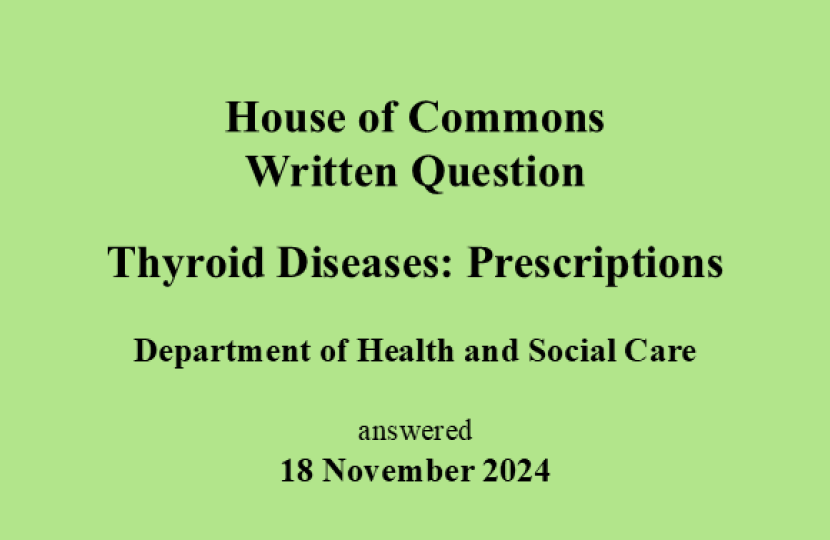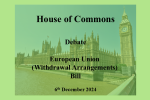
Chris Inquires Re NHS Prescription Charge Exclusion for Thyroid Diseases
Christopher Chope Conservative, Christchurch
To ask the Secretary of State for Health and Social Care, for what reason there are different rules for exemptions from NHS prescription charges for people with (a) hypothyroidism and (b) hyperthyroidism.
Karin Smyth Minister of State (Department of Health and Social Care)
Records are not available to enable us to explain why only hypothyroidism is listed.
The list of specified medical conditions that provide exemption from prescription charges was agreed in discussion with the British Medical Association in 1968. Decisions on which conditions to include were reflective of medical knowledge and practice at the time. The only addition to the list since then has been the treatment of cancer in 2009.
However, whilst it is the case that most patients with hypothyroidism, also known as an underactive thyroid, will require life-long synthetic hormone replacement with a medication called levothyroxine, patients with hyperthyroidism, also known as an overactive thyroid, do not necessarily require medication, as this condition can sometimes be managed surgically, or with radioactive iodine therapy.
While the Government’s policy remains that there are no current plans to review the list of medical conditions that entitle someone to apply for a medical exemption certificate, there are extensive arrangements currently in place in England to ensure that prescriptions are affordable for everyone. Further information is available at the following link:
https://www.nhsbsa.nhs.uk/help-nhs-prescription-costs
-ENDS- #14002

